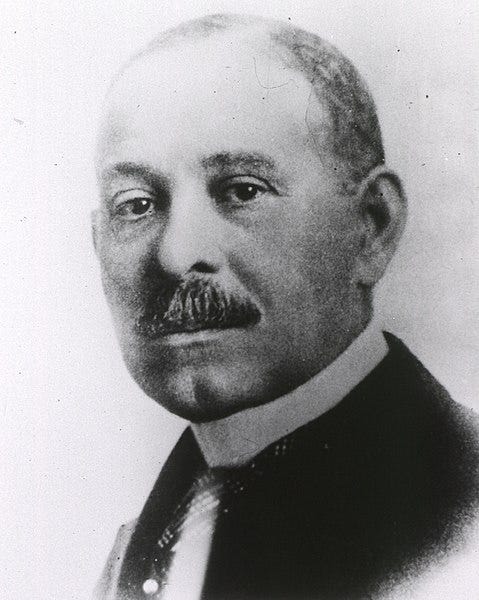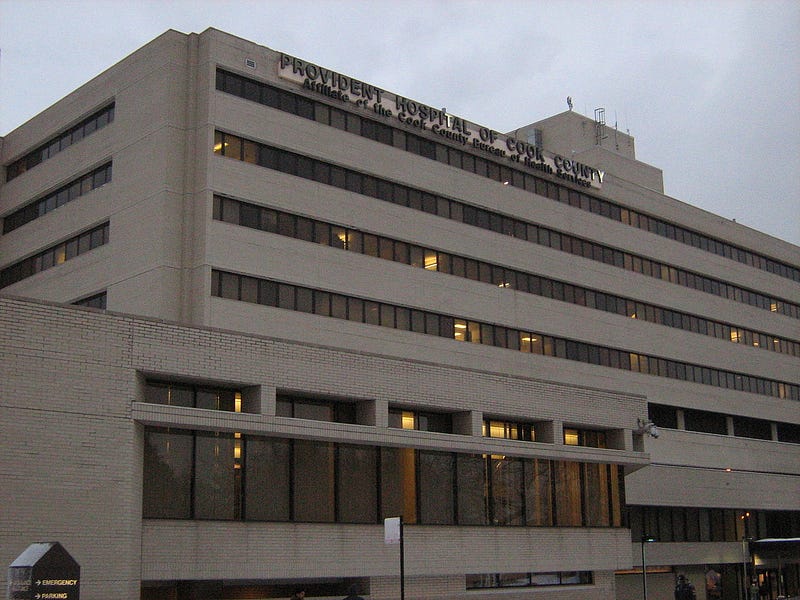Dr. Daniel Hale Williams: Pioneer of Open-Heart Surgery
Written on
Chapter 1: The Visionary Surgeon
Daniel Hale Williams was a groundbreaking Black physician based in Chicago who triumphed over the challenges of segregation.

"You claim to see what needs to be done. Well, mere hope is insufficient now or at any future time. The only path to success is to conquer the barriers in your path with the strength within you. Act upon your ambitions." — Frederick Douglass to Daniel Hale Williams
As noted by Northwestern University, Frederick Douglass, a long-time ally of Dr. Williams, offered him this crucial guidance while Dr. Williams faced the daunting reality of establishing his medical career amidst the racial divides of Chicago. Both were Black Americans during an era rife with discrimination and limited opportunities.
In 1893, Dr. Williams achieved the remarkable feat of conducting the first successful open-heart surgery, a mere 28 years following the ratification of the 13th Amendment in 1865, which abolished slavery. This monumental achievement was just one aspect of his life marked by significant accomplishments, all while confronting the societal barriers of segregation and inequality.
Section 1.1: Founding Provident Hospital
Born in Pennsylvania in 1856, Dr. Williams graduated from Chicago Medical School in 1883, which later became known as Northwestern’s Feinberg School of Medicine. Despite his qualifications, he struggled to secure a position in a hospital due to racial discrimination, instead taking roles in related fields, including serving as an anatomical demonstrator for medical students at Northwestern. In a city of over a million residents, he was one of only three Black physicians.
In 1891, Dr. Williams was instrumental in establishing Provident Hospital, the first hospital in America owned and operated by Black individuals. According to The Provident Foundation, this facility catered to medical and surgical patients and included a nursing training school. Dr. Williams took on the role of chief-of-staff, creating an interracial staff and accepting patients without regard to race—an unprecedented practice in Chicago at the time.
Section 1.2: The Historic Open-Heart Surgery
In 1893, the risks associated with open-heart surgery were exceedingly high. Dr. Williams lacked access to many modern medical conveniences, such as X-rays, antibiotics, and blood transfusions.
As reported by Ronald Kotulak of the Chicago Tribune, a 24-year-old Black man named James Cornish was admitted to Provident Hospital with a knife wound to his chest sustained during a bar fight. As Cornish's condition worsened, he began to bleed profusely. Dr. Williams sprang into action, performing a crucial surgery under dire circumstances.
Utilizing a scalpel, he made a small incision in Cornish's chest, searching for the source of the bleeding. He discovered a severed artery and successfully sutured it, but also noted a one-inch tear in the pericardium surrounding Cornish's heart. Notably, the heart-lung machine, or cardiopulmonary bypass, which allows surgeries on a beating heart, wasn't utilized until 1953.
Working against the clock, with Cornish's heart racing at 130 beats per minute, Dr. Williams skillfully closed the pericardial wound with catgut. Cornish survived the procedure and was discharged 51 days later, having fully recuperated, save for a scar from the incision.
Dr. Williams' groundbreaking work is credited with pioneering open-heart surgery approximately 60 years before it became standard practice, as detailed by Denton A. Cooley and O.H. Frazier in an article for the American Heart Association.

Section 1.3: Legacy and Impact
Dr. Williams' successful open-heart surgery was not only a remarkable achievement but also a testament to his surgical prowess. In 1902, he became one of the first surgeons to successfully repair a penetrating spleen wound, according to Alisha J. Jefferson, M.D., and Tamra S. McKenzie, M.D. at the American College of Surgeons.
Beyond his surgical skills, Dr. Williams' contributions to the community were even more profound. Without his intervention, James Cornish would likely not have survived that fateful night due to both the severity of his injuries and the systemic racism that would have barred him from other hospitals.
By establishing Provident Hospital, Dr. Williams not only created a medical facility for the Black population of Chicago but also offered a place for Black nurses and doctors to work and gain education. His efforts not only advanced his career but also opened doors for others facing similar discrimination. He navigated the many hurdles of inequality and paved the way for future generations.
Takeaways
The quote from Frederick Douglass that opened this narrative is commemorated on the walls of the Daniel Hale Williams Auditorium at Dr. Williams’ alma mater, The Feinberg School of Medicine at Northwestern University. He was the first African-American graduate and faculty member, with the auditorium being dedicated to him in 2004.
Dr. Williams exemplified bravery and resilience. When faced with barriers to his dreams, he found ways to overcome them. When denied a medical position in Chicago, he took the initiative to establish a hospital. When a man with a serious injury arrived in his operating room, he acted decisively to save his life.
Dr. Williams embodied the spirit of Frederick Douglass, refusing to allow societal limitations to dictate his path. As one of the most distinguished physicians of the late 19th and early 20th centuries, Dr. Williams stands as an inspiring figure, having uplifted his community and those around him despite the prevailing challenges of segregation and inequality.
Chapter 2: A Deeper Understanding of Dr. Williams’ Contributions
This video titled "BHM: First surgeon to perform open heart surgery | NewsNation Live" provides an insightful look into the life and achievements of Dr. Daniel Hale Williams, highlighting his pioneering role in medical history.
In the video "Black History Month Profile: Dr. Daniel Hale Williams," viewers can learn more about the incredible journey of this groundbreaking surgeon and his lasting impact on healthcare and society.